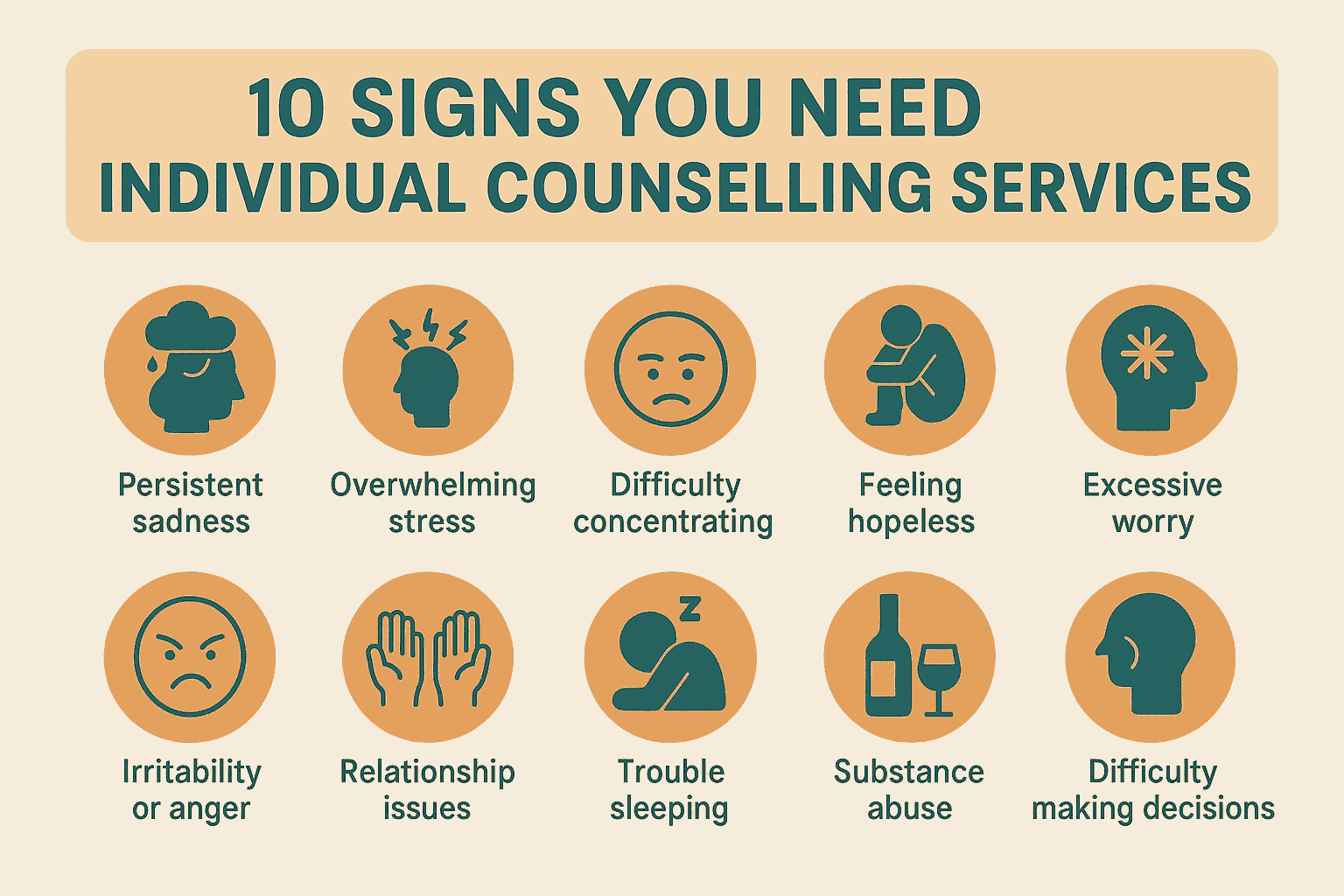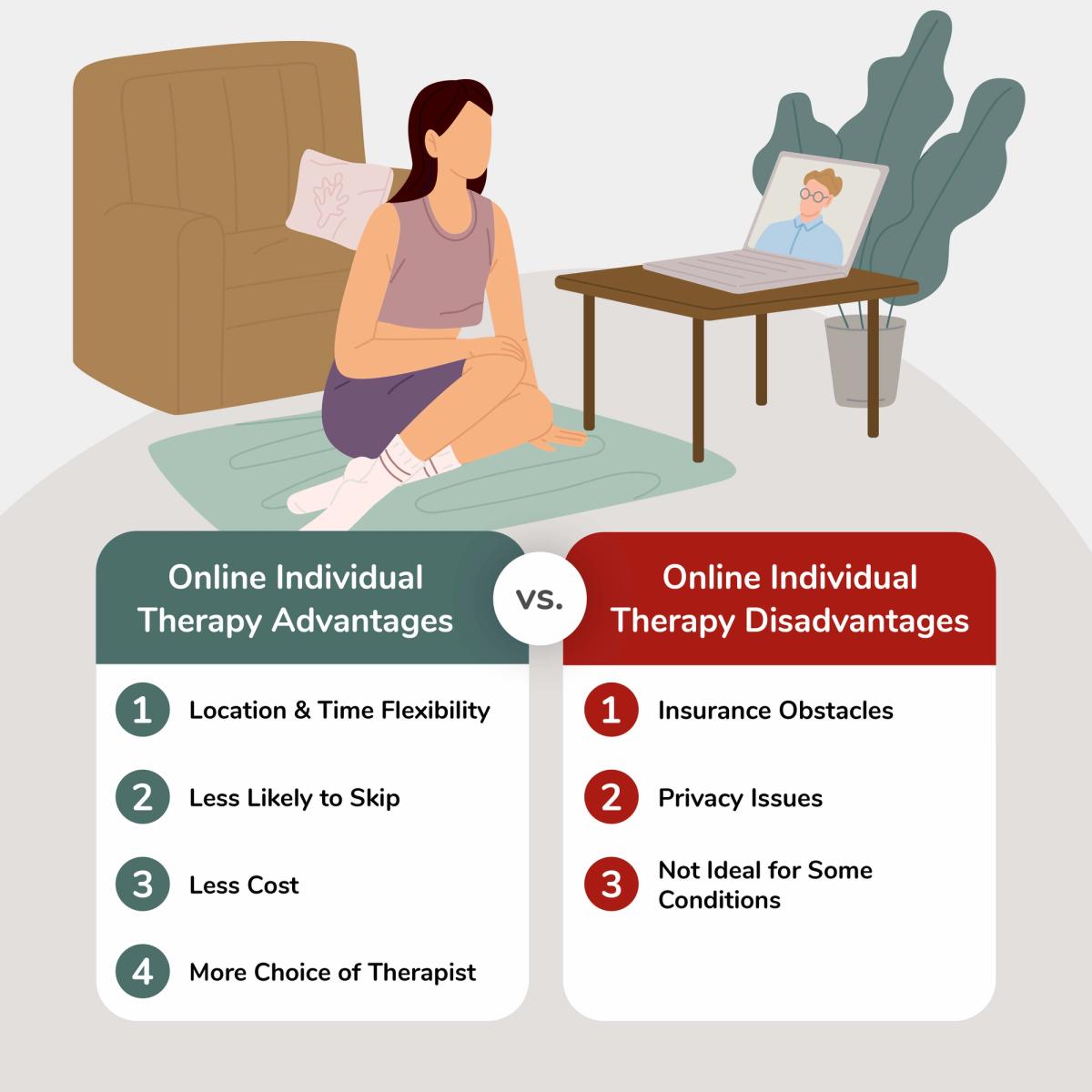Individual Therapy Toronto success stories: how local teens rebuilt confidence
Exploring the Advantages of Mental Therapy for Adolescent Wellness and Growth
Mental treatment plays a critical function in the wellness and development of teenagers. Adolescence is a troubled period marked by social and psychological challenges. Treatment offers an organized setting for teens to verbalize their feelings and confront their battles. It equips them with essential tools for durability and communication. As they browse this developing phase, the effect of treatment can be profound. What particular benefits can arise from such support during these developmental years?

Understanding the Teenage Mind: Pressures and difficulties
As teens navigate the complexities of their developmental stage, they face countless difficulties and pressures that can considerably impact their mental health. This period is marked by substantial physical, emotional, and social changes, which can cause sensations of confusion and uncertainty. Peer impact escalates, commonly bring about a battle for acceptance and identity. Academic expectations can develop extra anxiety, as the stress to stand out places in a progressively affordable setting.
The arrival of social media introduces a new layer of intricacy, where contrasts to curated online identities can intensify feelings of inadequacy and anxiousness. These elements can result in emotional distress, including anxiousness, anxiety, and reduced self-esteem. Comprehending these difficulties is necessary for parents, teachers, and mental health and wellness professionals, as it provides understanding into the teen experience and highlights the requirement for encouraging interventions to promote resilience and wellness throughout this vital developmental phase.
Developing a Safe Area for Expression
Creating a risk-free area for expression is vital for adolescents navigating their turbulent developmental phase. In healing settings, this setting cultivates open dialogue, permitting teens to connect their sensations without concern of judgment. Such areas enable them to discover their thoughts and feelings, which is crucial for understanding their identifications and experiences.
When teenagers really feel protected, they are most likely to share their battles, consisting of stress and anxiety, depression, or interpersonal conflicts. This open communication can cause deeper insights and promote individual growth.
A risk-free room motivates imagination and self-reflection, offering teens the liberty to share themselves via various outlets, such as art or writing. Developing trust between the therapist and the adolescent is essential, as it underpins the performance of the healing procedure. Eventually, developing a secure room for expression acts as a foundation for psychological recovery and individual growth during these formative years.
Establishing Coping Approaches and Resilience

Therapists typically present methods such as mindfulness, journaling, and problem-solving skills, making it possible for teenagers to manage their responses better. Additionally, by taking part in role-play circumstances, they exercise just how to take care of tight spots, strengthening their self-confidence. Gradually, these abilities promote a sense of firm, furnishing teenagers with the devices to browse life's unpredictabilities. The growth of resilience not just help in getting over instant obstacles but additionally lays the groundwork for healthier emotional responses in their adult years, inevitably adding to long-lasting health.
Enhancing Communication Skills
Effective interaction skills are crucial for teens as they browse complicated social landscapes. Psychological treatment plays an important duty in improving these abilities, enabling teenagers to reveal their ideas and emotions more plainly. Via assisted sessions, therapists encourage teens to express their sensations, facilitating better understanding in peer interactions and family characteristics.
Additionally, therapy supplies a risk-free area for practicing active listening, compassion, and assertiveness. These abilities empower teenagers to engage in purposeful conversations, resolve problems, and build stronger partnerships. As they find out to interact properly, they also gain confidence in their ability to support on their own and their needs.
Furthermore, enhanced interaction skills add to psychological intelligence, enabling teenagers to recognize and react to the emotions of others. This holistic development fosters a supportive environment, inevitably advertising general well-being and social integration. Via mental therapy, teenagers can grow these essential abilities for a healthier social experience.
Promoting Personal Growth and Self-Discovery
Promoting individual development and self-discovery in young adults includes a complex method that motivates understanding of individual identification. This process likewise highlights the value of structure strength skills and boosting try these out emotional understanding. Together, these elements produce a structure for healthier, extra certain people as they navigate their developmental years.
Comprehending Personal Identification
How do young adults browse the complicated landscape of individuality as they seek for self-discovery and development? During this developmental duration, they face numerous influences, consisting of peers, family members, and societal expectations. Mental treatment can work as a vital tool, offering a secure area for expedition and reflection. Through assisted discussions, teens can express their ideas and sensations, allowing them to comprehend their values, ideas, and wishes. This process cultivates a deeper understanding of their special identification, equipping them to make enlightened choices and create a feeling of purpose. As they take part in self-discovery, they discover to embrace their originality and browse challenges with better clearness, inevitably enhancing their overall health and individual growth.
Building Strength Skills

Enhancing Emotional Understanding
Enhancing psychological understanding is vital for teens navigating the intricacies of adolescence, as it allows them to recognize and comprehend their feelings much more effectively. By participating in psychological therapy, teens discover to recognize their psychological responses and the triggers behind them. This procedure fosters personal growth and self-discovery, allowing them to verbalize their feelings and deal with difficulties extra adeptly. As teenagers establish psychological awareness, they cultivate empathy, improve connections, and improve communication abilities. Additionally, this heightened awareness help in decision-making, assisting them navigate social stress and create a feeling of identification. Eventually, promoting emotional awareness with therapy can lead to healthier coping mechanisms and an extra balanced emotion, fundamental for growing during these formative years.
Structure Healthy Relationships and Support Systems
While passing through the complexities of adolescence, constructing healthy and balanced connections and support group is necessary for teenagers. These links provide emotional stability and a feeling of belonging, critical throughout this developing stage. Favorable partnerships with peers, family members, and coaches can blog boost self-esteem and durability, allowing young adults to navigate difficulties better.
Psychological therapy plays a critical role in cultivating these partnerships by outfitting teenagers with communication and conflict-resolution skills. Via treatment, they learn to share their sensations, recognize various viewpoints, and develop limits, which are fundamental for preserving healthy and balanced interactions.
Additionally, helpful networks urge young adults to look for assistance when required, decreasing isolation and advertising psychological health. They are much more likely to engage in useful you could try this out habits and make informed decisions when adolescents feel connected to their assistance systems (Individual Therapy Toronto). Overall, the farming of healthy relationships and support systems contributes in advertising teen well-being and personal development
Frequently Asked Questions
How Do I Find a Qualified Specialist for My Teenager?
To locate a qualified specialist for a young adult, one ought to look for recommendations from medical care providers, research study credentials on-line, examine testimonials, and identify the specialist concentrates on teen issues, promoting a helpful setting for development.
What Are the Expenses Connected With Mental Treatment for Teenagers?
The costs connected with mental treatment for teens vary extensively, normally varying from $50 to $250 per session. Insurance policy coverage, moving scale fees, and neighborhood sources can affect price and accessibility for family members seeking assistance.
Just How Frequently Should Teenagers Go To Therapy Procedure?
Teenagers should preferably participate in therapy sessions once a week or biweekly, relying on individual demands. Constant sessions can cultivate a secure space for expression, while permitting therapists to check development and adjust methods properly gradually.
Can Therapy Work for All Teenagers?
Treatment can be efficient for numerous teenagers, but individual outcomes differ. Elements such as personal circumstances, openness to the process, and the therapeutic approach employed all affect its efficiency for each teen.
What Should Moms and dads Do Throughout Their Teenager's Treatment Process?
Parents must proactively sustain their young adult's therapy procedure by preserving open communication, respecting discretion, participating in sessions if welcomed, and motivating their child's initiatives (Individual Therapy Toronto). Understanding and perseverance are essential as teens browse their individual growth journey
Psychological treatment plays a crucial function in the wellness and development of teens. By engaging in psychological treatment, teens learn to acknowledge their emotional feedbacks and the triggers behind them. Psychological treatment plays an essential role in promoting these relationships by furnishing adolescents with interaction and conflict-resolution skills. Teenagers must preferably go to therapy sessions weekly or biweekly, depending on specific demands. Moms and dads should proactively support their teen's treatment process by keeping open interaction, appreciating discretion, going to sessions if invited, and urging their kid's efforts.